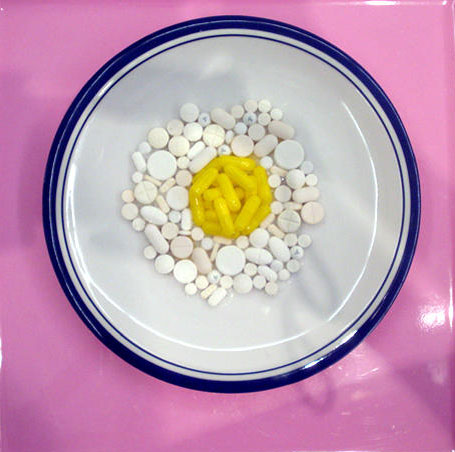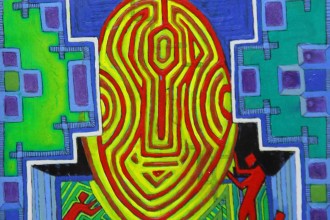Coming to terms with an inherited struggle from father to son
Over Christmas vacation my father tries to kill himself in front of me for the second time. I cradle his head in my lap and sing “Why Do Fools Fall in Love†by Frankie Lymon and the Teenagers. However, my voice cracks on the high notes because I crack up. I am crying and screaming and my friend Phil calls 911. I am cradling my father’s body when the EMTs come in and tell me in calm, rational voices to “move so we can do our job.â€
Their job is to save his life, but it feels like mine. It is the second time I have saved him from killing himself. The whole situation is my responsibility, and I know that soon I will have to make the choice that ends his life.
Phil interned at an emergency room the previous summer. He reveals this fact to me when I call from outside the ER at Montefiore in New Rochelle to check if he’s okay. Honestly, I hadn’t seen his text. He was ready to follow the ambulance in my car. He wanted to be there if I needed help. I didn’t see his text though. So he took the Metro North train back to New York City.
I needed to apologize. But how do you phrase that?
Phil’s a college friend, he’s twenty-three years old, and he’s had issues with substances. How do you apologize to your friend who comes to your house to sit with you by the fire to watch late 80’s and early 90’s Kurt Russell and Jean Claude Van Damme movies, and to be sober together? How can you look him in the face afterwards, and still invite him over?
Like mom says to do — “You’re always welcome, Phil.â€
And tell him it’s a safe place — “You’re always welcome.â€
My father overdosed on one hundred oxycodones.
But please, Phil, you’re always welcome here.
I ask Phil if he’s okay, and he tells me the absolute (Boston-born-young-Irish-male) truth, “Yeah, I’m fine.â€
He says he was more concerned about me than my father. He knew where my father was. My father had overdosed. Help was on the way. Nothing could be done. But apparently I was the one who didn’t look so good. According to Phil, I was “very pale.â€
Ghosts are pale. I have seen ghosts before.
There is a half-breath of silence before Phil says another word, and I am with my father again. His skin pales as I sing to him, and the cold droplets of sweat on his brow mix with the hot flecks of my tears and spit.
My friend warns me to be careful. People like us — addicts and bi-polar sufferers — have a tendency to make impulsive decisions when in a state of trauma. Ah… perhaps I am in trauma. Perhaps trauma is a state of regression, of lifelessness, of death.
Shortly after I get off the phone with my friend, Aunt Nadia arrives and comforts me with a Marlboro 27. She, mom, and I are smoking the cigarettes outside the emergency room, until I start to cry. For some reason, I am unable to maintain my stone façade and the numb composure cracks, but not into shards or splinters — which might be expected — it disintegrates into dust.
“I’m sorry.†That is what is ripped out of me. “It’s my fault. I’m sorry. I should have let him die. It’s my fault. He wanted to die. He said so in the ambulance. He didn’t want me to call. I held his head in my lap. I could’ve done it. I’m sorry.â€
I don’t say it neatly, as it is typed on this page. As I say, it is ripped from the deepest core of me, the place that should never be seen or heard from, the place where a child must make the choice to save or spare a human life.
Still, as I stand there on the hard concrete walkway, surrounded by cigarette butts, and parked ambulances, and a light dusting of freshly fallen snow — I fear I have made the wrong choice. The fear is rooted deep in my tendons and bones and it holds steady; even as my mother and aunt say in rotation, “There was no choice. You made the only choice. That’s what makes you human. You would have never been able to live with yourself.â€
David — my brother — arrives about three minutes into my breakdown and hugs me in silence. He’s physically bigger than I am, and ten years older, so it’s like squeezing an oversized teddy bear. He doesn’t squeak.
After we break he says, “I’m done with him†and walks away.
I watch David go and — once more — I am in the basement.
My father is very pale.
He has come down here every night to sleep for the last twenty-two years. This practice coincides with the time I was born. Down here, he tried to kill himself five years ago almost to the month.
At least he ate more then, had some muscle, and played some tennis. Five years later, he looks small and withered against the pure white blankets in the gurney. Out of the way, an officer asks me questions, but I am only half in the moment answering.
The other half of me looks at the space where my father isolates himself and his life. He makes his lair twelve steps below the main floor of the house. The cellar is cold and stark, and has neither a TV nor a computer. My father is a physical therapist, so he reads anatomy textbooks; there are a few by his couch. There is a Stickley computer desk, a chair, and neglected objects picked up over twenty two years of residence that never made the cut into the new upstairs design motif, which is chic-zen (meaning lots of Buddhas and Chinese New Year stuff).
Pill bottles are like an orange, plastic tabletop, and the pills inside them look like candy. A lot of the bottles hold circular, white pills that are about a ½ inch across with an indent down the middle. These are oxycodone. One bottle — particularly large and manufactured to fit one hundred and twenty — is empty.
I only noticed the empty bottle in the morning, because last night when I was going to have Phil sleep down here, I exercised my better judgment and decided against it. Phil slept in my room.
Earlier that very night — about an hour or so before Phil hopped the Metro North up from the city — my father cried on my shoulder and revealed to me the pain he was in. I stroked his bald head and said, “I know dad. I understand. It’s a hole you can’t fill. I have bi-polar too. But medication can help. Tomorrow can be the first day of the rest of your life. But you have to take the first step.†Yes! I said that trite, overused line and he slept upstairs. He slept in the guest bedroom, on the pullout couch. It still felt like a victory.
It was only by chance I went downstairs today at 10:32 this morning to ask my father for money to go out with Phil and buy a shotgun. That’s right, I was not saying goodbye.
It wasn’t by chance that I noticed him slurring his words. I already knew the answer when I held the large, empty orange bottle in the air and asked him, “Where are the pills? This was full yesterday. I saw it. I know.â€
He says, “Flushed them…I flushed them.â€
“You wouldn’t lie to me, right?â€
“No.â€
I kiss him on his forehead and go upstairs slowly. Phil stands in the kitchen dressed in his jeans, combat boots, and a white T. He looks ready to go.
I say, “I have to call my mother, my father just overdosed.â€
I pause with my hand on the doorknob, and count fifteen seconds before I go back downstairs.
The police huddle around and — in their attempt to look in control of themselves — actually appear wild and bright-eyed. Some even clutch their guns as they face me — the child who is singing a DooWop song to his father, who is unable to sing along. After all what the officers don’t know is that dad loves DooWop, and taught me to love it too, even though neither of us can sing on key.
Noah Klein is a regular contributor to the magazine.Â





